Filter by
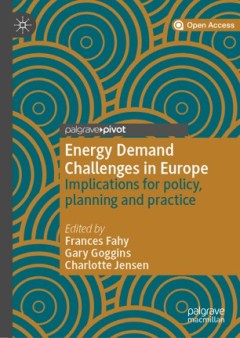
Energy demand challenges in Europe : implications for policy, planning and pr…
This open access book examines the role of citizens in sustainable energy transitions across Europe. It explores energy problem framing, policy approaches and practical responses to the challenge of securing clean, affordable and sustainable energy for all citizens, focusing on households as the main unit of analysis. The book revolves around ten contributions that each summarise national trend…
- Edition
- -
- ISBN/ISSN
- 9783030203399
- Collation
- xv, 157p. : ill.
- Series Title
- -
- Call Number
- 333.79094 ENE e
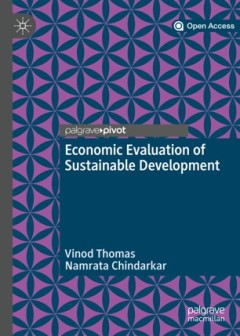
Economic evaluation of sustainable development
This book presents methods to evaluate sustainable development using economic tools. The focus on sustainable development takes the reader beyond economic growth to encompass inclusion, environmental stewardship and good governance. Sustainable Development Goals (SDGs) provide a framework for outcomes. In illustrating the SDGs, the book employs three evaluation approaches: impact evaluatio…
- Edition
- -
- ISBN/ISSN
- 9789811363894
- Collation
- xxiii, 145p. : ill.
- Series Title
- -
- Call Number
- 338.927 THO e
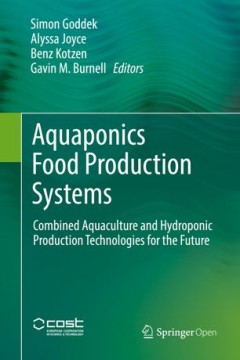
Aquaponics food production systems : combined aquaculture and hydroponic prod…
This open access book, written by world experts in aquaponics and related technologies, provides the authoritative and comprehensive overview of the key aquaculture and hydroponic and other integrated systems, socio-economic and environmental aspects. Aquaponic systems, which combine aquaculture and vegetable food production offer alternative technology solutions for a world that is increasingl…
- Edition
- -
- ISBN/ISSN
- 9783030159436
- Collation
- xvi, 619p. : ill.
- Series Title
- -
- Call Number
- 577.7 AQU a
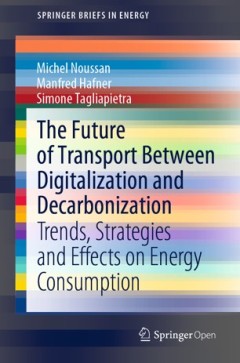
The Future of transport between digitalization and decarbonization : trends, …
Energy systems are rapidly transitioning towards decarbonization, thanks in part to innovative digital technologies and changing mobility demands. This open access book examines the decarbonization and digitalization transformation in the transport sector, with a particular focus on energy consumption. By studying historical trends and outlining future scenarios, the authors illustrate the evol…
- Edition
- -
- ISBN/ISSN
- 9783030379667
- Collation
- xv, 112p. : ill.
- Series Title
- -
- Call Number
- 628.532 NOU f
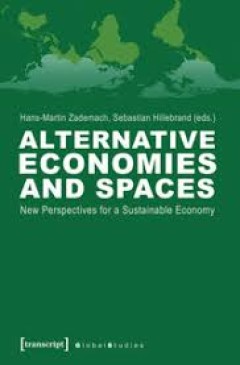
Alternative economies and spaces: new perspectives for a sustainable economy
The volume entails a collection of contributions by leading scholars (Raymond Bryant, Michael K. Goodman, Benjamin Huybrechts, Andrew E.G. Jonas, Roger Lee, Peter North, and Katinka Weber) concerned with alternative modes of economic and social exchange. The cases addressed in these contributions – including credit unions, alternative currencies, sustainable consumption, and social enterprise…
- Edition
- -
- ISBN/ISSN
- 9783837624984 (pbk.)
- Collation
- 156 pages ; 23 cm.
- Series Title
- Global studies (Bielefeld, Germany)
- Call Number
- 330 ZAD a
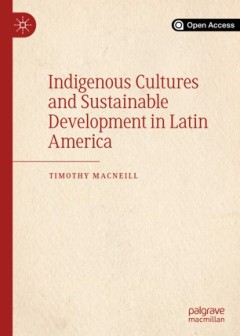
Indigenous cultures and sustainable development in Latin America
This open access book outlines development theory and practice overtime as well as critically interrogates the “cultural turn” in development policy in Latin American indigenous communities, specifically, in Guatemala, Honduras, Ecuador, and Bolivia. It becomes apparent that culturally sustainable development is both a new and old idea, which is simultaneously traditional and modern, and th…
- Edition
- -
- ISBN/ISSN
- 9783030370237
- Collation
- ix, 253p. : ill.
- Series Title
- -
- Call Number
- 306.098 MAC i
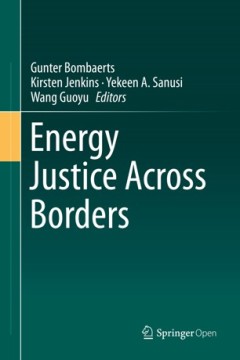
Energy justice across borders
We must find new and innovative ways of conceptualizing transboundary energy issues, of embedding concerns of ethics or justice into energy policy, and of operationalizing response to them. This book stems from the emergent gap; the need for comparative approaches to energy justice, and for those that consider ethical traditions that go beyond the classical Western approach. This edited vol…
- Edition
- -
- ISBN/ISSN
- 9783030240219
- Collation
- xiv, 305p. : ill.
- Series Title
- -
- Call Number
- 333.79 ENE e
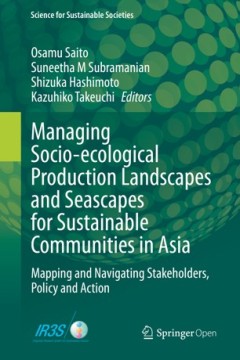
Managing socio-ecological production landscapes and seascapes for sustainable…
This open access book presents up-to-date analyses of community-based approaches to sustainable resource management of SEPLS (socio-ecological production landscapes and seascapes) in areas where a harmonious relationship between the natural environment and the people who inhabit it is essential to ensure community and environmental well-being as well as to build resilience in the ecosystems tha…
- Edition
- -
- ISBN/ISSN
- 9789811511332
- Collation
- x, 179p. : ill.
- Series Title
- -
- Call Number
- 333.7 MAN m
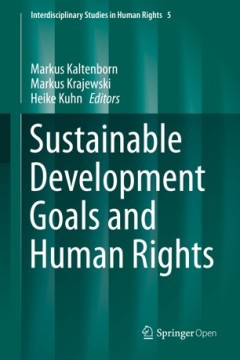
Sustainable development goals and human rights
This open access book analyses the interplay of sustainable development and human rights from different perspectives including fight against poverty, health, gender equality, working conditions, climate change and the role of private actors. Each aspect is addressed from a more human rights-focused angle and a development-policy angle. This allows comparisons between the different approaches bu…
- Edition
- -
- ISBN/ISSN
- 9783030304690
- Collation
- xv, 239p. : ill.
- Series Title
- -
- Call Number
- 304.2 SUS s
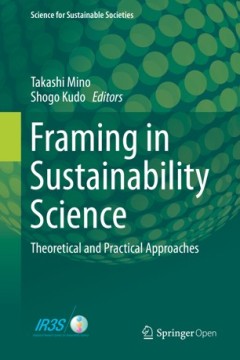
Framing in sustainability science : theoretical and practical approaches
This open access book offers both conceptual and empirical descriptions of how to “frame” sustainability challenges. It defines “framing” in the context of sustainability science as the process of identifying subjects, setting boundaries, and defining problems. The chapters are grouped into two sections: a conceptual section and a case section. The conceptual section introduces readers …
- Edition
- -
- ISBN/ISSN
- 9789811390616
- Collation
- viii, 196p. : ill.
- Series Title
- -
- Call Number
- 338.927 FRA f
 Computer Science, Information & General Works
Computer Science, Information & General Works  Philosophy & Psychology
Philosophy & Psychology  Religion
Religion  Social Sciences
Social Sciences  Language
Language  Pure Science
Pure Science  Applied Sciences
Applied Sciences  Art & Recreation
Art & Recreation  Literature
Literature  History & Geography
History & Geography